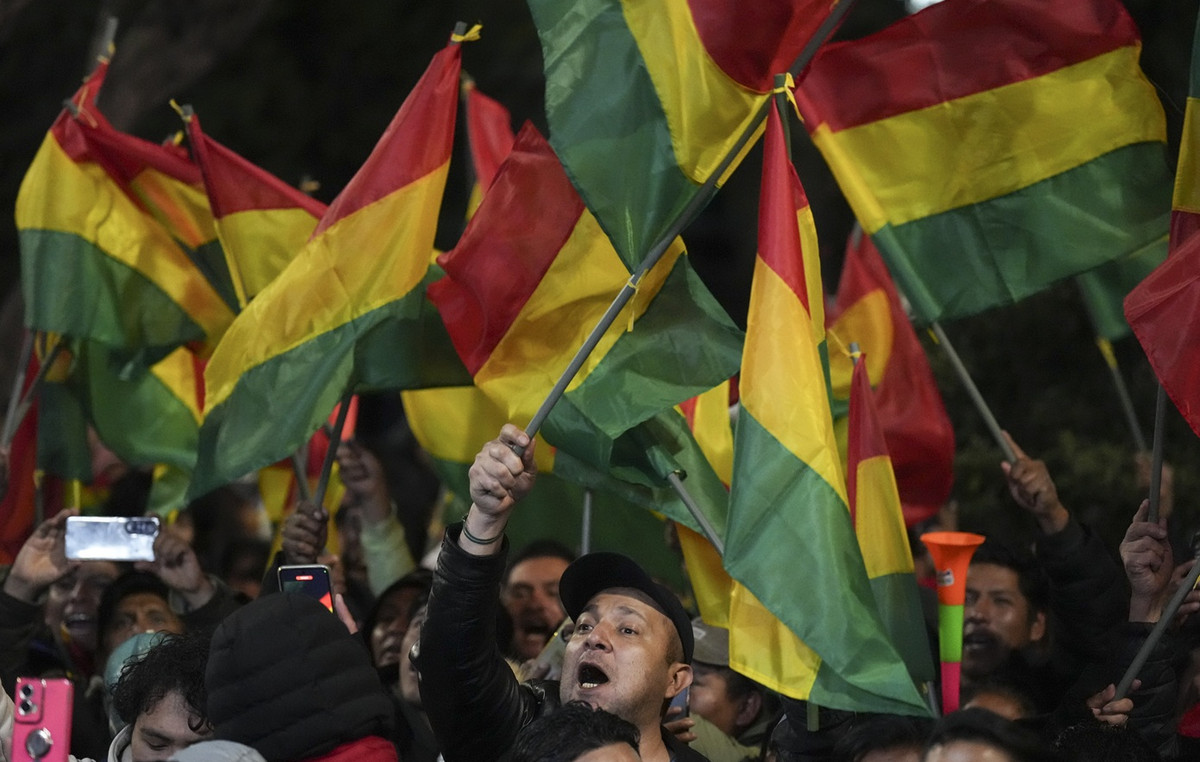The Minister of the Federal Supreme Court (STF) Kassio Nunes Marques revoked, in a monocratic way, last Thursday (2), the impeachment of state deputy Fernando Francischini (União Brasil-PR) and federal deputy Valdevan Noventa (PL-SE). ).
In October of last year, the collegiate body of the Superior Electoral Court (TSE) removed Francischini’s mandate after he was accused of spreading false news about electronic voting machines. The parliamentarian was punished with ineligibility for eight years – until 2026.
In March of this year, Valdevan was convicted of abuse of economic power during the 2018 election campaign. The TSE ratified the opinion of the Regional Electoral Court of Sergipe (TRE-SE), which accused the parliamentarian of illicit capture and expenditure of funds without origin. identified.
The president of the STF, Luiz Fux, defends a reform in the Internal Regulations of the Court so that the subjection of monocratic decisions to the plenary becomes mandatory. Among the ministers, there is no consensus to change the regiment in this regard, according to an investigation by the policy analyst at CNN Carolina Brigido.
THE CNN asked the pre-candidates for the Presidency of the Republic what they think about monocratic decisions by STF ministers.
Check out the answers below:
Luiz Inácio Lula da Silva (PT):
The candidate will not comment on the matter.
Jair Bolsonaro (PL):
The president has not responded at the time of publication.
Ciro Gomes (PDT):
The pre-candidate has not responded at the time of publication.
André Janones (Avant):
The pre-candidate has not responded at the time of publication.
Simone Tebet (MDB):
The pre-candidate did not respond at the time of publication.
Luciano Bivar (Union Brazil):
The pre-candidate has not responded at the time of publication.
Felipe d’Avila (New):
The pre-candidate has not responded at the time of publication.
Jose Maria Eymael (DC):
The pre-candidate has not responded at the time of publication.
Leonardo Pericles (UP):
The pre-candidate has not responded at the time of publication.
Pablo Marcal (Pros):
I think it is not the role of the Executive to confront the other powers of the Republic. We have a problem questioning the STF’s monocratic decisions because they are regimented and, therefore, legal. People disagree with the content and, therefore, with the judge’s merit and conviction. Dissatisfied with the inability to act, they start to disagree with the form, that is, with the legal mechanism. It makes no sense. It’s like losing an election and criticizing the presidential format of the election, as if another format would change the game. You lost because, within the rules of the game, the population chose the other. We have to stop discussing the mechanisms when they don’t favor us and have a broad discussion to reform the legislative and judicial apparatus in a technical way, not in a heated and passionate way.
Sofia Manzano (PCB):
Monocratic decisions are part of the process in the STF. Given the fact that the court is both a constitutional court and a final appeal court, it ends up having a very high volume of claims. This is a more internal debate in the STF. What would be more important to discuss about the institution is its role in the class struggle in Brazil.
The STF has been hailed as a guarantor of democratic institutions, which in short would be the opposition to the Bolsonaro government in its coup agenda, which is still true, but the STF has been a partner, with its decisions in the processes of dismantling the labor rights, see the recent decisions that privilege the negotiated over the legislated, with regard to labor rights, has been validating the 2017 labor reform. national congress, which ended up leading to the privatization of BR Distribuidora from Petrobras, of several refineries.
In short, the STF has a progressive liberal stance with regard to individual rights, but when it comes to the preservation of labor and social rights, as well as the defense of public services and the privatization of strategic state-owned companies, the STF has acted in a general aligned with the Bolsonaro government and its privatist logic and the dismantling of the Brazilian state in favor of capital.
Vera Lucia (PSTU):
President Bolsonaro (PL) has no commitment to democratic freedoms. Minister Kassio Nunes Marques, appointed by Bolsonaro, makes monocratic decisions that go in that direction. It is a clear decision in defense of Bolsonarist parliamentarians, demonstrating complete exemption in relation to a president who defends a military coup.
In this sense, I believe that a change in the regiment is necessary, because a decision by the collegiate is more democratic than a monocratic decision. But this change alone is not enough, a set of measures is needed that seeks to democratize the Federal Supreme Court (STF) and the Brazilian Justice. The balance of justice in our country always weighs heavily when it comes to judging the struggles and strikes of workers and is blind to thefts, corruption scandals and crimes committed by the rich and powerful.
Today, the STF is composed of 11 ministers with absolute powers, who are chosen by the president on duty, without any control and participation by society. Not to mention the high salaries, benefits and perks, privileges that become an affront to the reality of the majority of the people of our country, who are forced to survive on a minimum wage of R$ 1,212.
Photos – The pre-candidates for the presidency
Source: CNN Brasil







